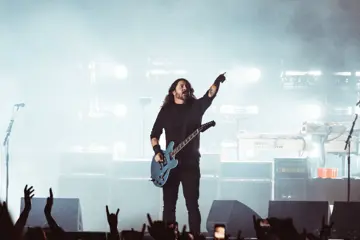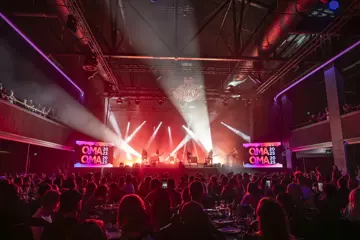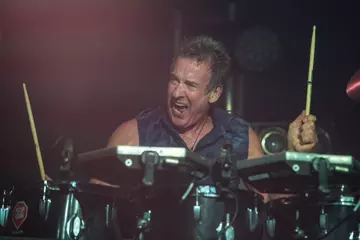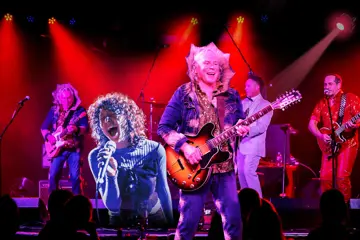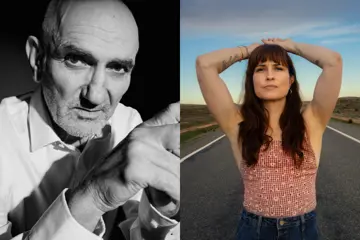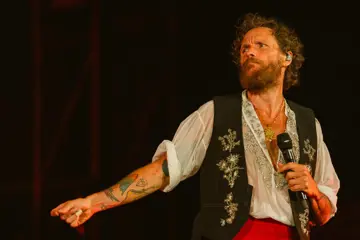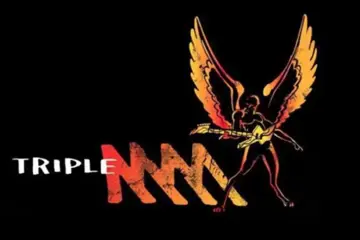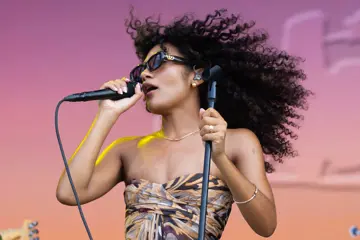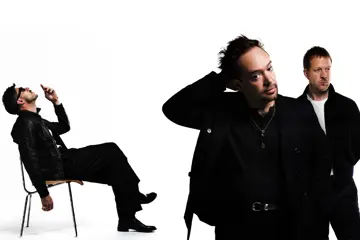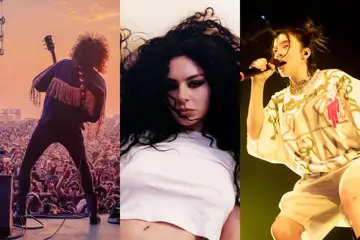"It doesn't quite feel right to call Taj Mahal a blues artist. While there's no doubt that it's the closest classification you could use if you felt the need to easily pigeonhole the vast, almost 50-year-long musical career of the now 70-year-old band leader, it's the cross-cultural musical experience that he provides through his records and live shows that have made him so enthralling and set him apart from his peers in this time.
“I'm just trying to make people aware,” Taj Mahal croaks genially down the line from Oakland, California, his gritty voice the result of a lifetime of performing and a penchant for cigars. “Americans have kind of an isolationist problem, where they just don't really know too much about what else is going on in the world. It takes a lot of energy to make people aware of that. It's only your mind that thinks you aren't connected to the rest of the world, because you are indeed connected to the rest of the world. To me, it's always interesting and always exciting to make this connection.
“A lot of people outside the Americas make the connection but people oftentimes, particularly in the United States, don't make that connection. But they are now as they get farther away from being influenced by older traditions in this country.”
The world music/blues crossover is far from prevalent these days and was even less so when Mahal started to make a name for himself in the mid-1960s. While he could feel exactly what music he wanted to make, he didn't overanalyse it, nor try and predict how the world would respond. “I was just on my way to do what I felt,” he says. “I really wouldn't want to spend 50, 60, 70 years in a closet, that's not my kind of way of enjoying an incredibly multi-faceted world that we live in.
Don't miss a beat with our FREE daily newsletter
“Unless you're a country that's totally sustained by everything you have inside the borders of that country… You know, people are drinking coffee from Brazil, bananas from Ecuador, oranges from Mexico and they have no concept of that connection. I like being aware of it and I like making people aware of it and I think music is the easiest way to do that.”
With a rap sheet that features explorations in jazz, R&B, blues and the music of Hawaii, Jamaica, India and Africa – there are few musicians who can boast a more varied career than Mahal. He's still on the lookout for new sounds, new influences and new ways of playing, though – he wants to do a hip hop record.
“Big fat beats! A lot of… 'YEAHHHHH!',” he chuckles as he imitates a brash and boastful rapper with a booming voice. “It would be very interesting to work with someone like that. I like a lot of the beats on some of that stuff and I like some of the artists – not necessarily the content a lot of the time, but I'm open to it.
“Almost every music that is now part of the mainstream was an outlaw music at one time; jazz was a big-time outlaw music, ragtime was outlaw music, even gospel was outlaw music, blues certainly was outlaw music, rhythm'n'blues, funk, progressive jazz… All of it was outlaw music. Then when they finally figured out a way to market it, it came on in.”
Some of his ideas seem more realistic than others, though. “There are other folk forms [I'd like to try]. I'd like to play a certain four-string guitar called a cuatro and play these kinds of rhythms that they have in the Caribbean and South America; that would interest me greatly.”
It seems an odd suggestion, but last year's issue of Hidden Treasures Of Taj Mahal is not a bad place for the young and curious to start, if looking to delve into his extensive catalogue. The songs – all previously unreleased – have a rawness and freewheeling feel to them and, surprisingly, they don't sound dated. Given the quality of the songs, one wouldn't blame Mahal for begrudging the fact they weren't released earlier, but that's not the case.
“I'm actually glad that we waited,” he says. “I didn't have a hand in it until a few years ago when they said, 'Come and check out the stuff from the vaults, here's something we think that might be releasable'. I really wasn't for the idea at first, but it grew on me as I started listening to it because I felt pretty much the way I did when I recorded it. What was out there and what was recorded was what it was. There was no reason for me to go back and revisit what was there, but I'm really excited by it.”
Sweet Mama Janisse from The Hidden Treasures of Taj Mahal
When the unreleased material holds up so well, that's almost testament in itself to the quality of the material released through a musician's career. Taj Mahal has left a serious musical legacy thus far, and he's pleased about it. “Sure, I'm very happy!” he says. “I'm very happy I followed my mind and got it done. I think the heartbreak at this point would have been if I sat there and said, 'You know, I had some ideas back in the '60s and '70s but I never did them. Just imagine how good that would have been'. Oh no, it's all there. All shaggy, sometimes furry, it's all there.”
As well as being a great musician and songwriter, one of Mahal's greatest talents – as will be evidenced on his forthcoming tour – is his talent as a band leader. He lets us in on some tricks as to how he can bring the most out of his groups. “Being conscious of being fair-minded and open-minded, finding musicians who are carrying their own weight; sometimes you find just great musicians, but socially and sociably, they're just Neanderthals – they're lost, and I don't have musicians like that around me,” he says. “There's a certain level of personal competence and intelligence I need from the guys that I play with and I think that I've been able to achieve that.”
Despite the fact he's released something in the vicinity of 25 studio albums, playing live means everything to Mahal. “Live music is what it's all about. That's it. It doesn't get any better than that. I'm coming from live to the record, not from the record to live, so it's a different concept.”
Columbia reissued thirteen of Mahal's early albums just a couple of weeks ago, but he doesn't sound in any rush to get back into the studio. “We'll see how things go,” he says. “The music business right now is in the throes of making such major changes and what I've been working on is how best I can promote what it is that I do with the modern technology and how my music gets played. That's what's exciting.”
Taj Mahal will be playing the following dates:
Saturday 23 March - Enmore Theatre, Sydney NSW
Sunday 24 March - Hamer Hall, Melbourne VIC
Tuesday 26 March - The Tivoli, Brisbane QLD
Friday 29 and Saturday 30 March - Bluesfest, Byron Bay NSW

